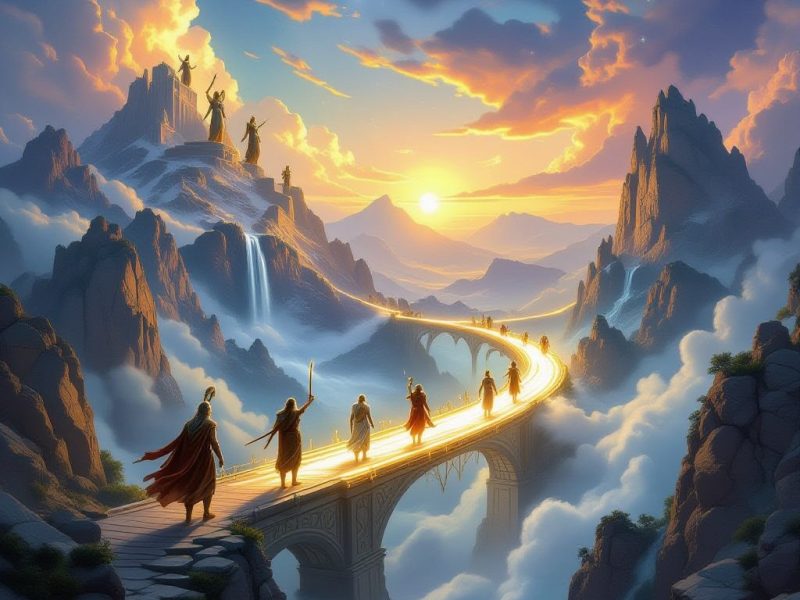Introduction
Myths are not mere tales from the past — they are the echoes of human experience, preserved across time to teach, warn, inspire, and unite. Greek and Norse mythologies, in particular, have captivated imaginations for centuries. But more than entertainment, these mythologies hold within them profound wisdom about morality, courage, leadership, ambition, hubris, and the eternal human struggle to find meaning in a chaotic world.
This blog explores the deeper philosophical and symbolic teachings from these ancient mythologies and why they still hold relevance in today’s digital and post-modern world.
Why Mythology Still Matters
In an age where science explains the mechanisms of life, mythology continues to explain the “why.” The stories may be symbolic, but the emotions they portray — love, jealousy, honor, revenge, destiny — remain deeply human.
1. The Human Archetype
Both Greek and Norse myths revolve around archetypes that modern psychology still uses — the hero, the trickster, the wise old man, the shadow self. Carl Jung’s theories owe much to these traditions.
2. Morality Tales
These stories often include moral dilemmas with no easy answers. Is Odysseus a hero or a manipulator? Was Loki simply mischievous or inherently evil? These dualities make mythology more than black-and-white fables.
Greek Mythology: The Divine Mirror of Humanity
Mount Olympus: A Dysfunctional Heaven
Greek gods were powerful, yes — but also jealous, petty, proud, and temperamental. This anthropomorphism allowed people to see their own virtues and vices reflected in divine form. The gods were lessons personified.
Key Themes in Greek Myth:
- Hubris vs. Humility: The downfall of Icarus and Oedipus demonstrates the dangers of arrogance.
- Fate vs. Free Will: Characters often battle their destinies, highlighting the limits of personal control.
- Wisdom through Suffering: Odysseus’s decade-long journey wasn’t just physical; it was spiritual.
Modern Lessons from Greek Myths:
- Leadership: The tragic errors of leaders like Agamemnon show that command must be tempered with wisdom.
- Strategic Thinking: Odysseus’s intellect (Trojan Horse) is revered more than brute strength.
- Consequences of Ego: Narcissus and Achilles show the danger of self-obsession and unchecked pride.
Norse Mythology: Grit, Doom, and Destiny
Asgard and the Frost of Reality
Where Greek gods partied on Olympus, Norse gods like Odin and Thor prepared for doom. Their world was colder, harsher, and more fatalistic. The coming of Ragnarök — the end of the world — was inevitable. Yet the gods fought on anyway.
Key Themes in Norse Myth:
- Inevitability of Death: Mortality is central — even gods can die.
- Bravery in the Face of Doom: True valor is shown not by success, but by persistence.
- Sacrifice for Wisdom: Odin gives up an eye for knowledge, symbolizing the price of enlightenment.
Modern Lessons from Norse Myths:
- Resilience: In uncertain times, belief in effort despite knowing outcomes is powerful.
- Community Bonds: Viking sagas emphasize kinship, loyalty, and the strength of unity.
- Sacrifice and Responsibility: Leadership is not power — it is service and personal cost.
Greek vs. Norse Mythology: A Comparative Lens
| Element | Greek | Norse |
|---|---|---|
| Worldview | Humanism, glory, excellence (Arete) | Fatalism, struggle, honor in death |
| Deities | Human-like gods with moral flaws | Stoic, grim gods awaiting doom |
| Purpose of Myth | Teach balance, pride, and virtue | Prepare for hardship, promote resilience |
Why These Myths Matter More Today Than Ever
1. Cultural Understanding
Much of Western literature, film, and philosophy is rooted in Greek and Norse symbolism. From Marvel’s Thor to Homer’s Iliad, understanding these myths enriches cultural literacy.
2. Psychological Growth
Mythology provides metaphors for inner growth, trauma healing, and existential navigation.
3. Archetypal Branding
Modern marketing often taps into these archetypes — brands are heroes, guides, rebels, or caretakers. These originate in myth.
Conclusion
Greek and Norse mythologies may be ancient, but their relevance endures. They teach us not just how to live, but how to struggle, learn, lead, and transcend. Whether you’re navigating personal development, corporate leadership, or spiritual exploration, these myths are more than stories — they are blueprints for the human soul.


